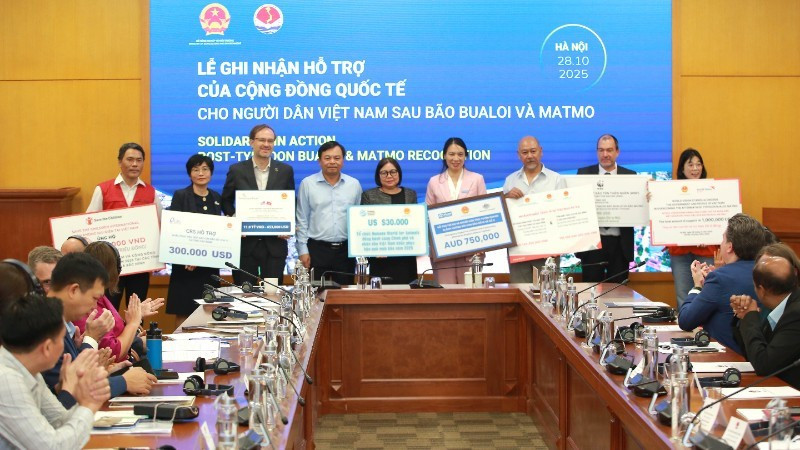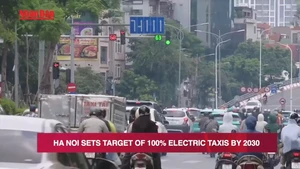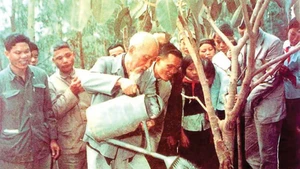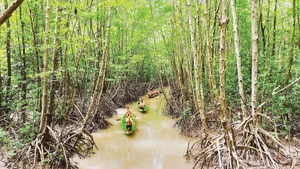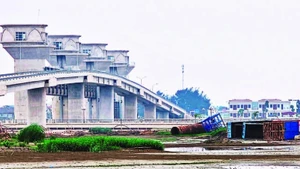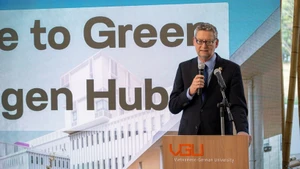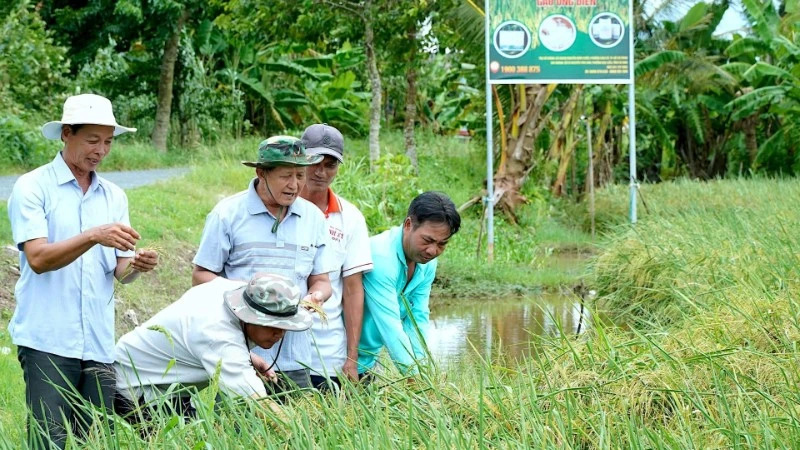Deputy Minister of Agriculture and Environment Nguyen Hoang Hiep and United Nations Resident Coordinator in Viet Nam Pauline Tamesis co-chaired the event.
The ceremony was attended by ambassadors of Australia, the Republic of Korea (RoK), Ireland, Singapore, and Canada; representatives from the delegation of the European Union to Viet Nam, the Japan International Cooperation Agency (JICA), various United Nations agencies, and other international organisations.
Participants shared insights on mobilising and providing resources to help affected Vietnamese communities recover from the floods caused by the two typhoons. They also reaffirmed their commitment to continuing cooperation with Viet Nam in disaster prevention, climate-change adaptation, and sustainable livelihood recovery.
Speaking at the ceremony, Deputy Minister Nguyen Hoang Hiep expressed heartfelt gratitude for the valuable support extended by the international community to people affected by natural disasters in Viet Nam. He also outlined the Government’s and the Ministry’s orientations for disaster prevention and control in the coming period, aimed at recovery and building back better.
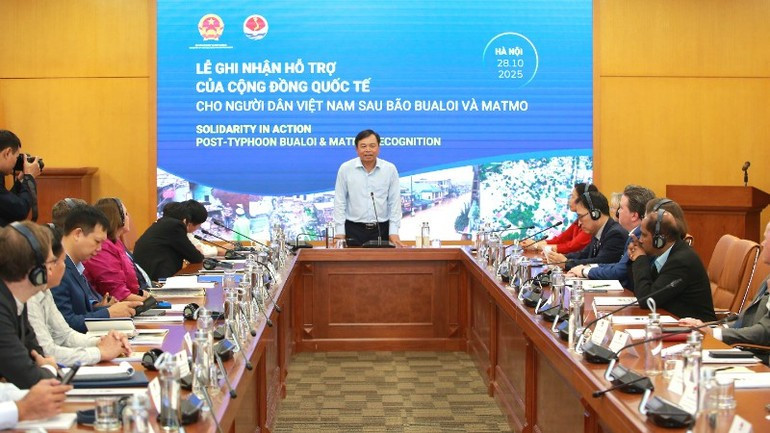
Speaking at the event, Pauline Tamesis, UN Resident Coordinator in Viet Nam, said that the ceremony not only recognised the practical contributions and support of the international community but also provided an opportunity to review the outcomes of recent cooperation in disaster response. She praised the proactive and timely coordination by the Department of Dyke Management and Natural Disaster Prevention and Control, along with the Disaster Risk Reduction Partnership Office, in mobilising and managing relief assistance.
Australian Ambassador to Viet Nam Gillian Bird shared that the Australian Government had provided 3 million AUD to support Viet Nam’s post-disaster recovery, with the first relief shipment delivered on October 14. The aid focuses on vulnerable groups, including women, children, ethnic minorities, and persons with disabilities. She added that this assistance follows Australia’s 4 million AUD support package after Typhoon Yagi in 2024, reflecting Australia’s long-term commitment to strengthening climate resilience in Viet Nam.
The RoK’s Ambassador to Viet Nam, Choi Youngsam, noted that his country had provided Viet Nam with 2 million USD in aid last year and 1 million USD this year to support disaster response and recovery. The assistance focuses on urgent needs such as housing repairs and livelihood restoration. He expressed the desire to work closely with Vietnamese authorities to ensure that the support reaches the right beneficiaries effectively and efficiently.
According to the Ministry of Agriculture and Environment, embassies and international organisations have so far provided and pledged approximately 9.7 million USD in aid for localities affected by Typhoon No. 10 (Bualoi) and Typhoon No. 11 (Matmo). Of this total, 7.2 million USD is direct financial assistance to affected people, while 2.5 million USD consists of relief supplies such as drinking water, water filters, blankets, school materials, household goods, and agricultural livelihood-recovery support.
